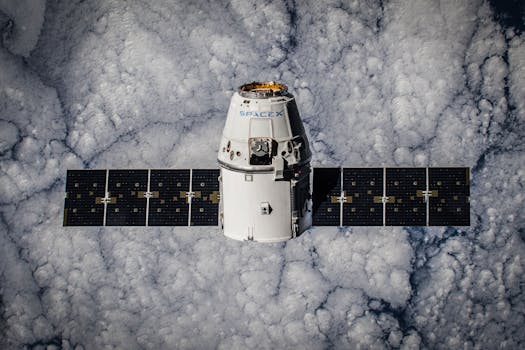
The Future of Satellites: Revolutionizing Global Communication and Exploration
The future of satellites is poised to revolutionize global communication and exploration, with advancements in technology and innovation leading to new opportunities and applications. The use of satellites has become increasingly important in recent years, with a growing demand for satellite-based services such as navigation, communication, and remote sensing. As technology continues to evolve, we can expect to see significant advancements in the field of satellites, leading to improved performance, increased efficiency, and new applications.
Advancements in Satellite Technology
One of the key drivers of the future of satellites is the advancement of technology. New materials and manufacturing techniques are enabling the production of smaller, lighter, and more efficient satellites. This is leading to a reduction in the cost of launching satellites into space, making it more accessible to a wider range of organizations and individuals. Additionally, advancements in propulsion systems and power generation are enabling satellites to operate for longer periods of time and to travel further distances.
Another area of advancement is in the field of satellite communications. New technologies such as satellite constellations and high-throughput satellites are enabling faster and more reliable communication services. This is particularly important for applications such as broadband internet access, where high-speed and low-latency connections are critical. The use of satellites for communication is also becoming increasingly important for remote and underserved communities, where traditional terrestrial infrastructure may not be available.
New Applications and Opportunities
The future of satellites is not just about advancing existing technologies, but also about exploring new applications and opportunities. One area of significant interest is the use of satellites for Earth observation and remote sensing. Satellites can provide valuable insights into the health of our planet, from monitoring climate change and tracking natural disasters to managing natural resources and monitoring agricultural productivity.
Another area of opportunity is the use of satellites for space exploration. As space agencies and private companies begin to explore the possibility of sending humans to the Moon and Mars, satellites will play a critical role in providing communication and navigation services. Satellites will also be used to study the environment and geology of other planets, helping us to better understand the universe and our place within it.
The use of satellites for commercial purposes is also becoming increasingly important. Companies such as SpaceX and Blue Origin are developing satellites for a range of applications, from communication and navigation to Earth observation and space tourism. The commercial satellite industry is expected to grow significantly in the coming years, driven by demand for satellite-based services and the decreasing cost of launching satellites into space.
Challenges and Opportunities
While the future of satellites is exciting and full of opportunity, there are also challenges that must be addressed. One of the key challenges is the issue of space debris, which poses a significant risk to the safety and operation of satellites. As the number of satellites in orbit increases, so too does the risk of collisions and the accumulation of debris.
Another challenge is the issue of regulation and governance. As the use of satellites becomes more widespread, there is a need for clear and consistent regulation to ensure that satellites are used responsibly and safely. This includes issues such as licensing and spectrum management, as well as the development of international standards and guidelines.
Despite these challenges, the future of satellites is bright. With continued advancements in technology and innovation, we can expect to see significant improvements in the performance and efficiency of satellites. This will lead to new opportunities and applications, from improved communication and navigation services to enhanced Earth observation and space exploration capabilities.
Conclusion
In conclusion, the future of satellites is poised to revolutionize global communication and exploration. With advancements in technology and innovation leading to new opportunities and applications, the use of satellites is becoming increasingly important. From communication and navigation to Earth observation and space exploration, satellites are playing a critical role in shaping our understanding of the world and our place within it. As we look to the future, it is clear that satellites will continue to play a vital role in shaping our world and our future.




